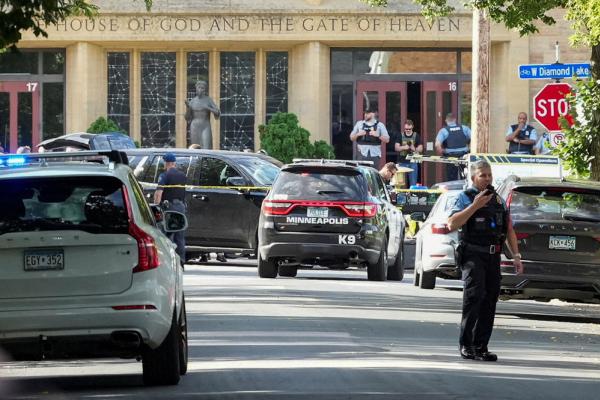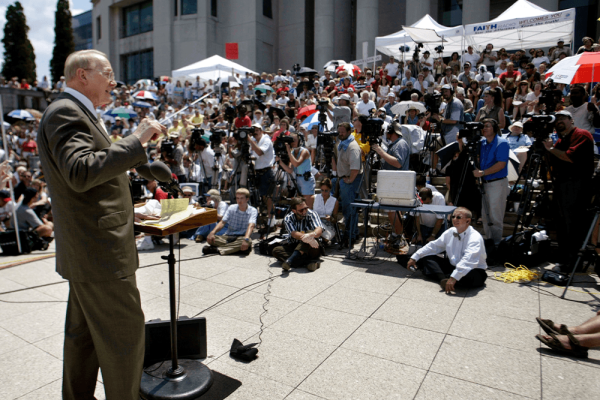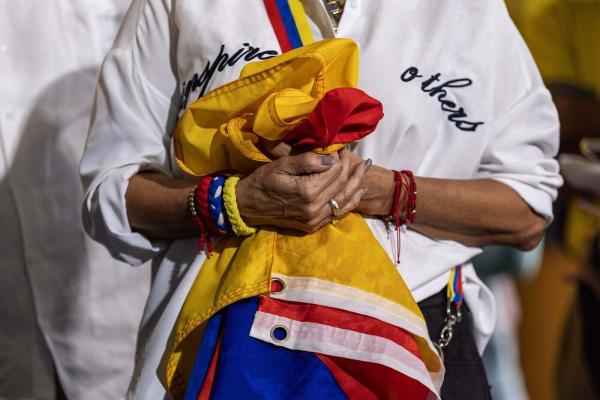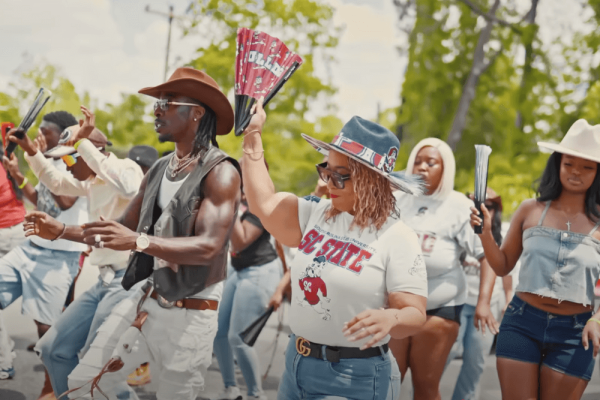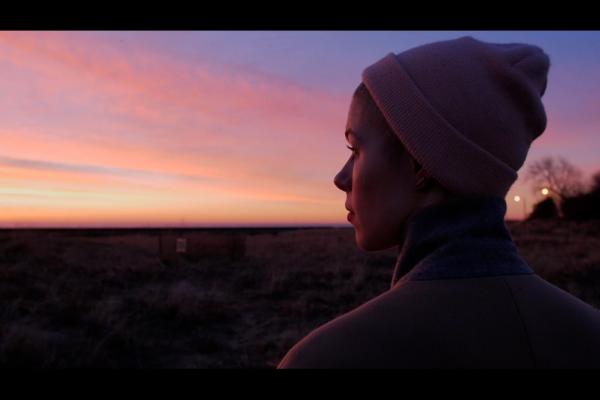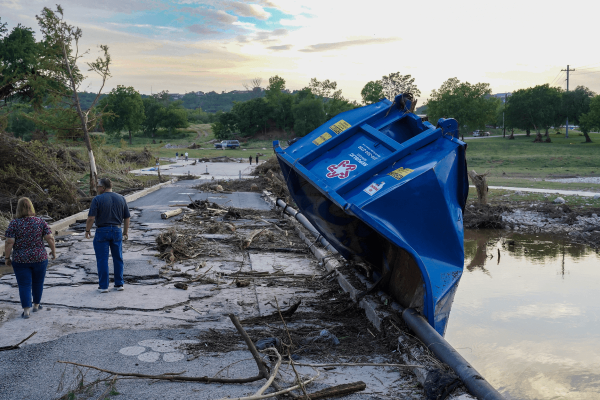Two children were killed and 17 other people were injured on Wednesday after a gunman opened fire on schoolchildren who were attending Mass at a Minneapolis Catholic school, authorities said.
The assailant, wielding a rifle, a shotgun and a pistol, fired dozens of rounds through the church windows, officials said. The shooter then took his own life, they said.
Full disclosure: It’s entirely possible you wouldn’t be reading this interview right now if not for its subject. Let me explain.
In 2013, Jemar Tisby and Phillip Holmes, co-founder of the organization then known as the Reformed African American Network, started a podcast called Pass the Mic.
James Dobson, the Christian family psychologist and media mogul who became one of the key architects of the Religious Right, has passed away.
At his height, Dobson’s influence was vast. His Colorado-based organization Focus on the Family helped build American evangelicals into a political monolith. He enjoyed access to the highest levels of Republican administrations—so much so that the New York Times dubbed him “the nation’s most influential evangelical leader” in 2005. He served on President Donald Trump’s evangelical advisory board in 2016 and supported his re-election bid in 2020.
As a former strong-willed child, I’ve had the notion of James Dobson’s mortality in the back of my mind for the last half-decade or so.
I was not expecting a few tears to fall at the news of his death at age 89, but they showed up anyway. Even though this guy hadn’t hurt me for decades, it felt like a relief. I know he inflicted damage on millions of others that might never fade, but his death made it feel like Earth had just become a little less cruel.
When I am acclimating myself to my neighbors, one of the things I enjoy doing is asking them how they came to be my neighbors. You never really know people’s backgrounds, and it’s always interesting to see people light up at the opportunity to tell you a bit about themselves. Very often, both in Washington D.C. and my home state of Texas, I’ll run into people from Ethiopia.
When I went to college in Austin, I got to know a lot of people whose families came from Ethiopia. In getting to know them, I learned about the conflicts that have forced people to leave their homes and to obtain protection under Temporary Protected Status in 2022 due to the nation’s ongoing wars and humanitarian crises. The TPS designation allows migrants to temporarily live in the U.S. when they cannot return to their countries safely, often due to dire circumstances. For the people I met from Ethiopia, TPS offered an escape from physical danger and a chance to thrive here in the U.S. while working to end the conflict back home and caring for their loved ones as best they can.
“Federal employees should never have to choose between their faith and their career,” Scott Kupor, director of the U.S. Office of Personnel Management, said in a statement last month.
Kupor was positively commenting on a July memorandum to federal agencies that explains that federal employees are allowed to, for example, hold prayer circles and discuss their religious beliefs with colleagues. The memorandum even goes so far as to say that civil servants can “persuade others of the correctness of their own religious views.” According to Kupor, “This guidance ensures the federal workplace is not just compliant with the law but welcoming to Americans of all faiths.”
I didn’t expect church to be the place where I learned 803Fresh’s “Boots on the Ground,” the latest line dance taking the nation by storm. The song, which currently has more than 14 million views on YouTube and is known for the refrain, “Where them fans at,” has been danced to by folks like Shaquille O'Neal, Ciara, Kamala Harris, Tina Knowles, and Michelle Obama. And it’s been performed everywhere, from trail rides to graduations, news broadcasts to talk shows. But when people started performing the line dance in church, not everyone was pleased.
“Some of these so call [sic] churches is night 🌙 clubs,” wrote one Facebook user in response to a viral video of a “Boots on the Ground” line dance performance at a small church. “Put them boots on the PASTOR and scoot him out of the church,” another wrote.
As an editor and journalist, it’s my job to have words for the news of the day. But now and then, the news of the day has a way of robbing me of all my words. This is especially the case when the news of the day revolves around an injustice that is actively harming our world and humanity. What truly leaves me wordless is when we, as people, know that something catastrophic is happening, but we seek to minimize or ignore it. How do I change that? Is there a perfect combination of words and data to prevent that?
A specific example is Israel’s ongoing genocide in Gaza. I’m not sure what else has to be said at this point to help people realize that a genocide is happening right before our very eyes, and it is likely to expand beyond Gaza into the occupied territory of the West Bank. One of Israel’s leading human rights organizations—B’Tselem—is desperately trying to raise the alarm about this very fact.
When the House passed President Donald Trump’s Big Beautiful Bill Act, House Speaker Mike Johnson gave glory to God.
Johnson, the Louisiana Republican and Christian, believes that his work and the work of the United States are divinely orchestrated. But if the so-called “Big Beautiful Bill” is truly from God, then what are we to make of cuts that negatively impact the most marginalized in our society?
In July, Environmental Protection Agency Administrator Lee Zeldin announced an intention to revoke the Endangerment Finding. This 2009 ruling is the EPA policy that says greenhouse gases harm people—a finding that gives the EPA the authority to regulate climate-warming pollution.
If successful, the revocation would enshrine climate change denial as the official policy of the U.S. government and make it much harder to regulate fossil fuel emissions. The authors of the report cited to legitimize this move are a veritable all-star team of five climate-change-denying scientists, an extreme minority who contract the 97% of global scientists who believe humans are causing climate change. The absurdity is compounded by timing: Zeldin’s announcement came in the midst of the summer “Danger Season” when heat waves, floods, fires, and hurricanes leave millions reeling from weather crises exacerbated by climate change. According to the Union of Concerned Scientists, 98% of people living in the United States have faced an extreme weather alert since May 1, with over half of those alerts exhibiting clear, scientifically established connections to climate change.
